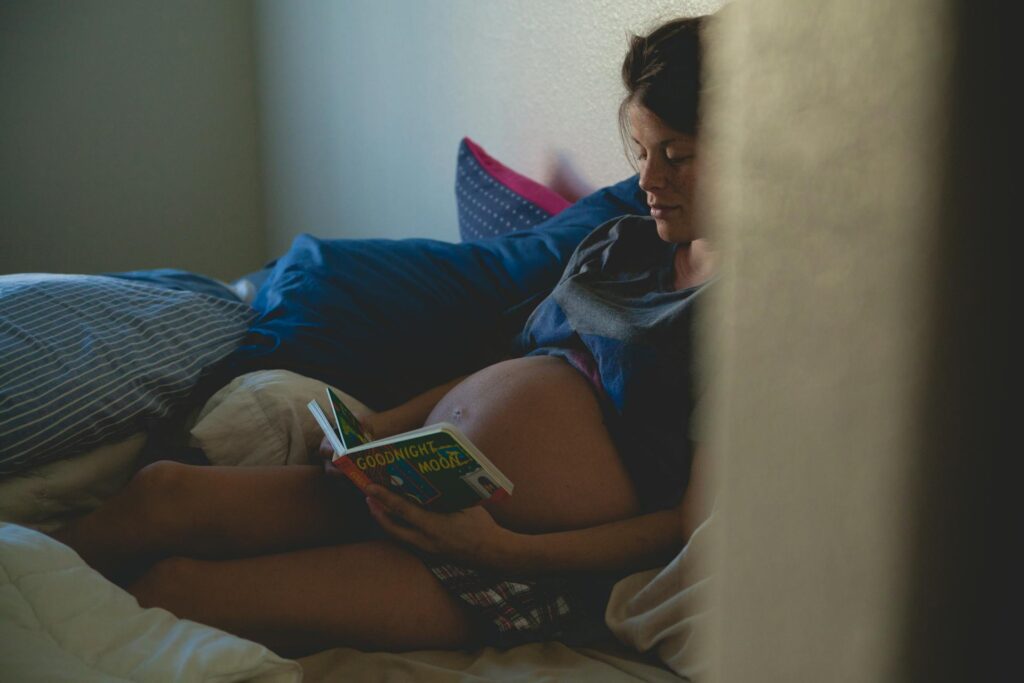Pregnancy is a time when your body undergoes several changes, so it is natural to experience different symptoms. Some of these changes are common, like morning sickness, fatigue, or missed periods. But others, like digestive issues, can leave you with questions. One question you might be asking is, “Is diarrhea a sign of pregnancy?”
While diarrhea is not one of the most commonly discussed symptoms, it’s something many women experience. In this guide, we’ll explore the connection between diarrhea and pregnancy, helping you understand what’s normal, what to look out for, and how to manage any discomfort you might experience. It’s important to listen to your body, especially during this transformative phase.
Can Diarrhea Be a Sign of Early Pregnancy?
When you’re trying to conceive or suspect you might be pregnant, you tend to notice little changes in your body. Diarrhea, while not a traditional or well-known sign of pregnancy, can sometimes occur in the early stages. This is due to the hormonal changes in your body as it adjusts to the pregnancy. In the first trimester, your body is flooded with hormones like progesterone and estrogen, which can affect your digestive system. For some women, this might mean constipation, but for others, it can cause diarrhea. It’s not the most common early signs, but it’s not unusual to experience some upset digestion during this time.
Hormonal Changes and Their Impact on Digestion
One of the key reasons why you may experience diarrhea during pregnancy is the shift in hormones. Progesterone can mainly have a significant effect on your digestive system. This hormone relaxes smooth muscle tissue, including the muscles in your digestive tract. This is beneficial for slowing down digestion and allowing more nutrients to be absorbed by your growing baby. However, it can also lead to digestive issues. For some women, this slower digestion may cause constipation, but for others, it can lead to diarrhea. If you find that your bowel movements have changed since becoming pregnant, it’s likely due to these hormonal shifts. Remember, everyone’s body reacts differently, so it’s important to listen to yours.
Other Causes of Diarrhea During Pregnancy
While hormones are a significant factor, there are many other reasons why you might experience diarrhea during pregnancy. Your body is going through many adjustments, and some of these changes may contribute to digestive issues. Let’s take a closer look at some common causes:
Dietary Changes: When you first learn you’re pregnant, you may start to make healthier changes to your food choices. You might be eating more fiber-rich foods, increasing your intake of fruits and vegetables, or taking prenatal vitamins. While these changes are good for your health and your baby’s development, they can also disrupt your digestion, temporarily. A sudden increase in fiber or certain supplements can lead to diarrhea as your body adjusts to the new diet.
Food Sensitivities: Pregnancy can sometimes make you more sensitive to certain foods. Foods that you previously enjoyed without any issues might suddenly cause discomfort or digestive upset. It’s not uncommon for pregnant women to develop new food sensitivities or intolerances, which could result in diarrhea. Pay attention to how your body reacts to different foods, and consider avoiding anything that triggers digestive problems.
Prenatal Vitamins: Prenatal vitamins are essential for supporting your baby’s development, but they can sometimes affect your digestion too. Iron, which is a common component of prenatal vitamins, can lead to constipation in some women. However, for others, certain formulations or additives in these vitamins might cause diarrhea. If you suspect your prenatal vitamins are causing issues, talk to your gynecologist about switching to a different formulation.
Infections or Stomach Bugs: It’s important to remember that diarrhea isn’t always related to pregnancy. Sometimes, you might experience it due to an unrelated cause, like a stomach bug, food poisoning, or an infection. If you’re unsure whether your diarrhea is pregnancy-related or caused by something else, try to monitor other symptoms. If you see symptoms such as fever, nausea, or stomach cramps, this indicates an illness, and quickly contact a doctor.

When to Be Concerned About Diarrhea
While occasional diarrhea can be normal during pregnancy, it’s important to know when it’s a sign of something more serious. If your diarrhea is persistent or accompanied by other symptoms, such as severe abdominal pain, fever, or dehydration, you should seek medical advice. Here are some signs that it’s time to contact your doctor:
- If diarrhea lasts for more than a couple of days, it can lead to dehydration and other complications.
- If you’re feeling lightheaded, dizzy, or extremely thirsty, or if you have dark urine, these could be signs of dehydration.
- If you’re experiencing diarrhea along with a fever or severe cramping, it could be due to an infection that requires treatment.
Your doctor will be able to assess your symptoms and recommend the best course of action.
Managing Diarrhea During Pregnancy
If you do experience diarrhea while pregnant, there are several things you can do to help manage the discomfort and prevent dehydration. Here are some tips to keep in mind:
Stay Hydrated: One of the most important things you can do if you have diarrhea is to stay hydrated. Diarrhea can cause you to lose fluids and electrolytes, so it’s crucial to replace them. Drink plenty of water, and consider adding an electrolyte drink to help maintain your fluid balance. Avoid sugary or caffeinated drinks, as these can make dehydration worse.
Adjust Your Diet: If you’re dealing with diarrhea, it may help to adjust your diet temporarily. Focus on bland, easy-to-digest foods like bananas, rice, applesauce, and toast (often referred to as the BRAT diet). These foods can help firm up your stools and soothe your digestive system. Avoid fatty, spicy, or fried foods, as these can irritate your stomach and make diarrhea worse.
Monitor Your Fiber Intake: While fiber is important for maintaining healthy digestion, too much fiber can exacerbate diarrhea. If you’ve recently increased your fiber intake, try cutting back slightly and see if your symptoms improve. Gradually reintroduce fiber-rich foods once your digestive system has settled down.
Talk to Your Doctor: If you suspect that your prenatal vitamins or any other medications are causing diarrhea, talk to your gynecologist. They may recommend switching to a different brand of vitamins or adjusting your dosage. It’s always a good idea to consult with a medical professional before making any changes to your medication routine.
How to Prevent Diarrhea During Pregnancy
While it’s not always possible to prevent diarrhea during pregnancy, there are some steps you can take to minimize your chances of experiencing it. Here are a few preventive measures you can follow:
- Focus on eating a variety of nutrient-rich foods that are easy to digest. Avoid making sudden, drastic changes to your diet, as this can disrupt your digestive system.
- Drinking plenty of water throughout the day can help keep your digestive system functioning smoothly.
- Washing your hands regularly, especially before eating, can help prevent infections that might cause diarrhea.
- If you notice that certain foods or habits are triggering digestive issues, make adjustments to avoid discomfort.
Conclusion
While diarrhea is not a definitive sign of pregnancy, it can occur due to the many changes in your body. Hormonal shifts, dietary changes, and other factors can all contribute to an upset stomach during this time. The key is to manage symptoms as they arise and seek medical advice if you experience persistent or severe discomfort. By staying hydrated, adjusting your diet, and talking to your doctor when necessary, you can manage diarrhea during pregnancy. Remember, every pregnancy is unique, and your body may react differently than others. Trust yourself, take care of your body, and reach out for support when needed.


